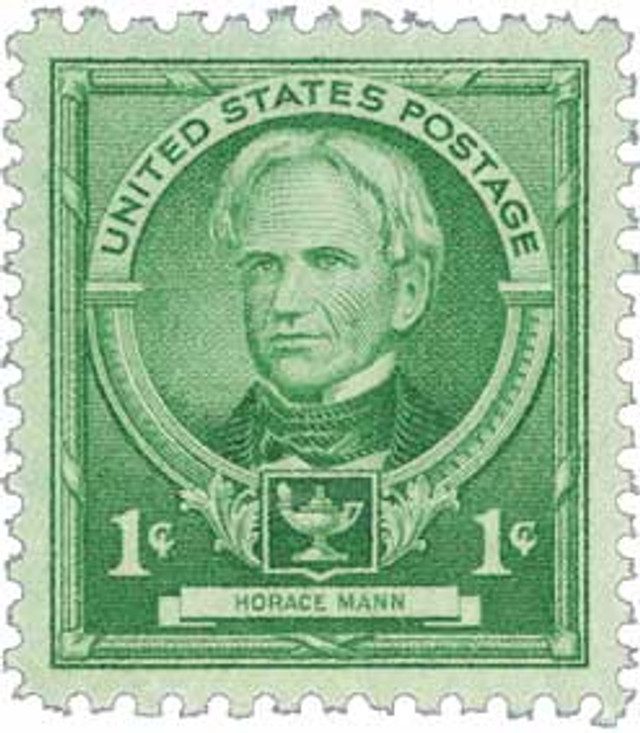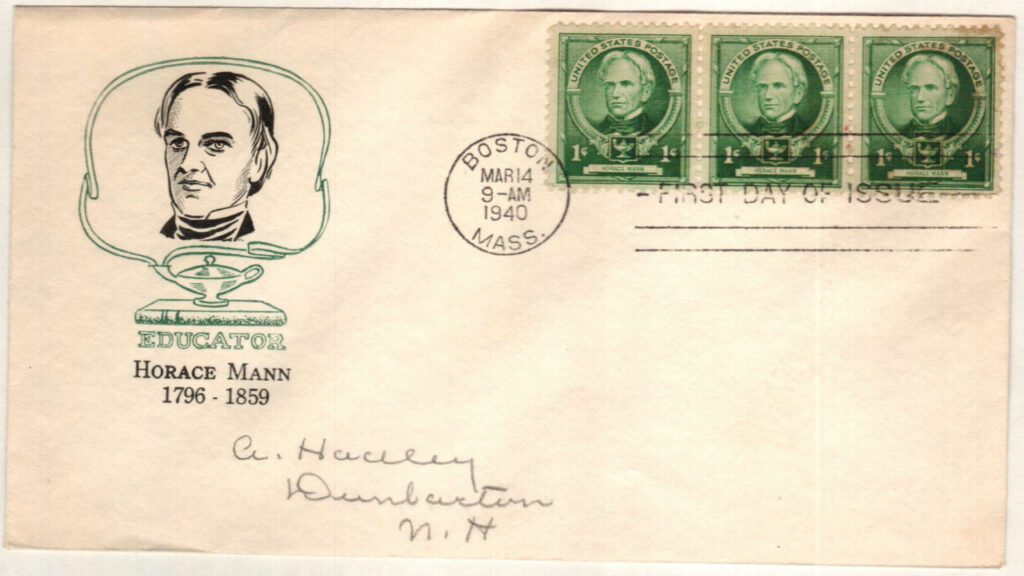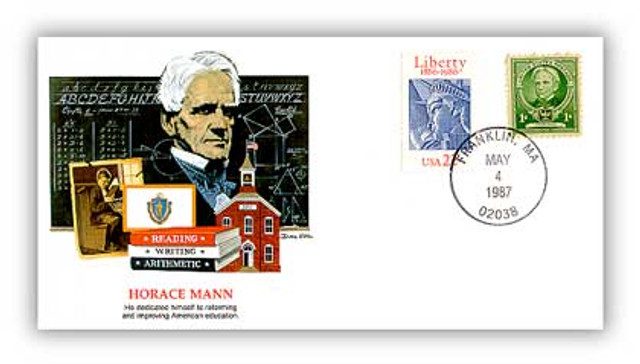Horace Mann was born on May 4, 1796, in Franklin, Massachusetts. Mann was a pioneering educational reformer who improved public education in his home state. Many of his ideas were quickly adopted by several other states.
Mann’s schooling was infrequent as a child. Between the ages of 10 and 20, he never had more than a couple months’ worth of schooling in any given year. However, he was a frequent visitor to the Franklin Public Library, one of the first public libraries in the country. He went to Brown University when he was 20, graduating as valedictorian after three years. Mann went on to work as a librarian and tutor of Latin and Greek before being admitted to the bar in 1823.
Elected to the Massachusetts state legislature in 1827, Mann supported education reform and public charities. He served on the committee that revised the state statutes and provided several changes that were ultimately adopted. Mann also opened an asylum in Worcester and served on its board of trustees. After moving to Boston, Mann was elected to the Massachusetts State Senate. He was the senate president for a year and pushed for the building of railroads and canals.
After Mann was made secretary of the new Massachusetts Board of Education in 1837, he resigned from all his other posts to focus his attention on this work. Mann worked tirelessly at educational reform. He held teachers’ conventions and presented his ideas at lectures around the state. In fact, he visited every school in the state so he could see what was and wasn’t working. Mann also developed the Massachusetts normal school system. This was a system that trained high school graduates to become teachers. He also introduced a series of annual reports that are considered one of the best “expositions… of the practical benefits of a common school education both to the individual and to the state.” Additionally, Mann discouraged the use of physical punishment in school discipline.
Mann founded The Common School Journal in 1838, which explored public schools and their issues. He had six main principles regarding education: the public could no longer be ignorant of it, education should be paid for and nurtured by the public, that schools include children from a variety of backgrounds, education should be non-sectarian, it should be taught on the tenets of a free society, and it should be taught by well-trained teachers. In 1843, Mann personally paid for a research trip to Europe to study how other schools operated, especially in Prussia. He published his results in his journal, which was widely circulated in the US and England.
Mann believed children from all classes should study together, so they could enjoy a common learning experience and the less fortunate could have a better chance at success. Mann also believed school could help provide discipline by encouraging prompt attendance and time management. While some opposed his reforms, they were widely accepted across Massachusetts and quickly spread to other states. Mann also pushed for women to become teachers.
Mann went on to serve in the US Congress from 1848 to 1853. In 1852, he was selected to serve as president of the new Antioch College in Yellow Springs, Ohio. While there, he taught economics, philosophy, and theology. He remained there until his death on August 2, 1859. Several schools and school buildings around the country have been named after Mann.
| FREE printable This Day in History album pages Download a PDF of today’s article. Get a binder or other supplies to create your This Day in History album. |
Discover what else happened on This Day in History.







As an educator, I know that Mann’s contributions to our educational system were outstanding! He was a true pioneer with foresight and passion for our field. A great day for our current teachers here on National Teacher Day! Thank you for your continued efforts on behalf of our students!
High School in Gary, Indiana named after him.
Also today in history 51 years ago 4 students at Kent State were shot to death by the national guard. I am not aware of a United States stamp being issued to commemorate their lives.
The current college campus protests bring back memories of Kent State for me. Hopefully only the local police departments will be used to restore order.
I’ve never heard of a single stamp or commemorative coin about it. Shame on those in charge who decide these things.
As a life-long public educator who grew up in Massachusetts in a town adjacent to Franklin, I have always been proud of the role Horace Mann played in the development of enlightened educational principles. It is sad to see so many of those principles under direct attack by the Trump presidency and by anti-democratic Christian Nationalists.